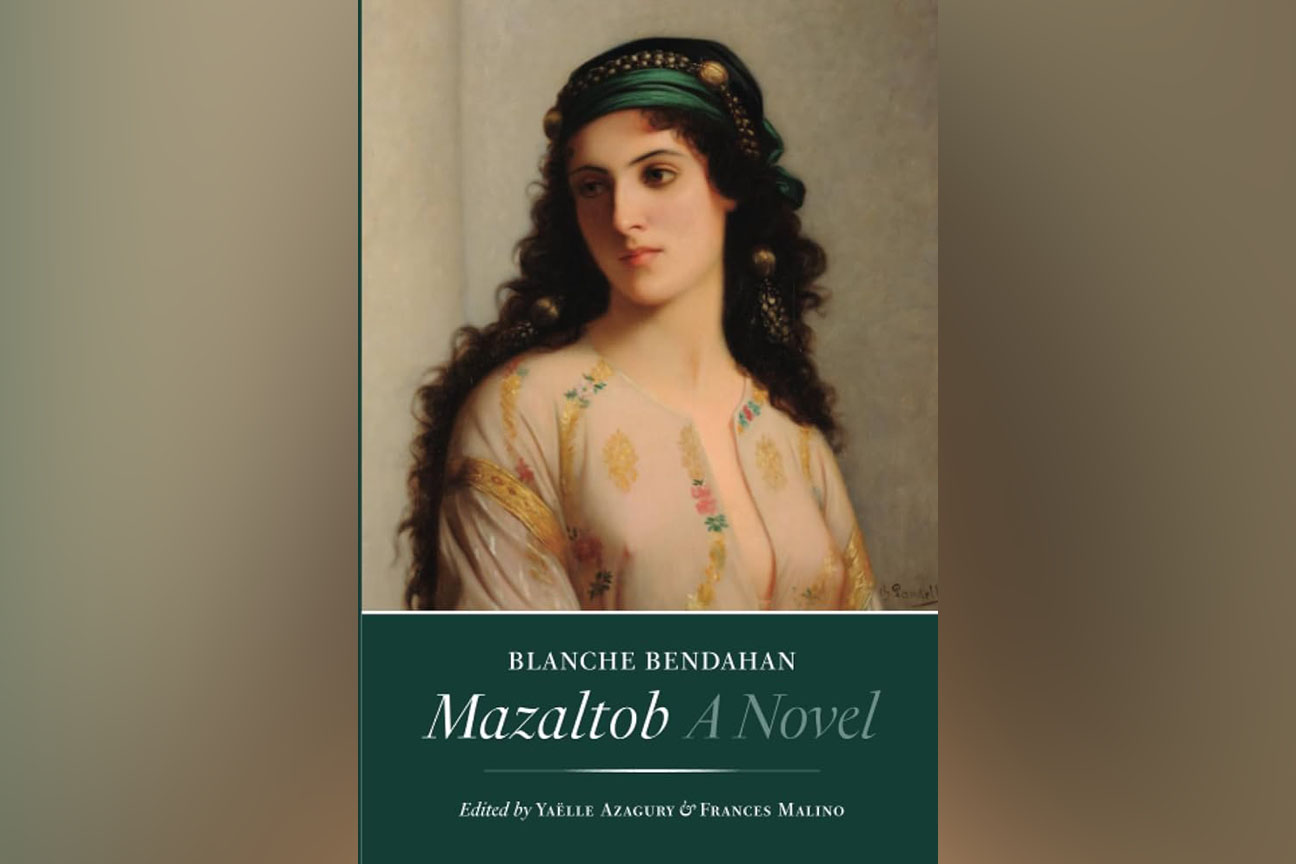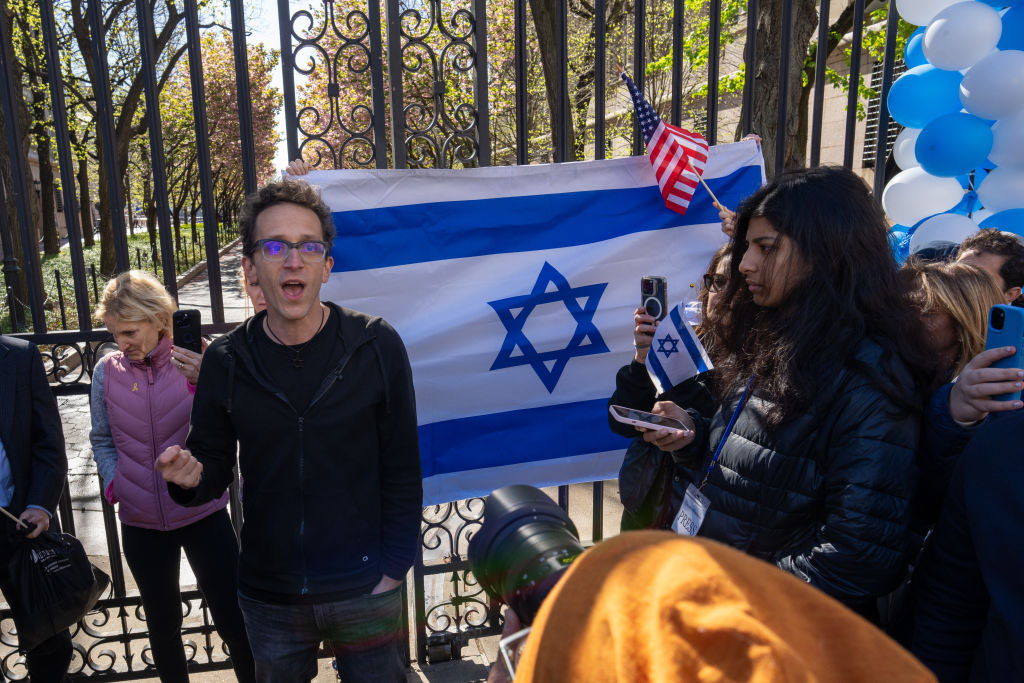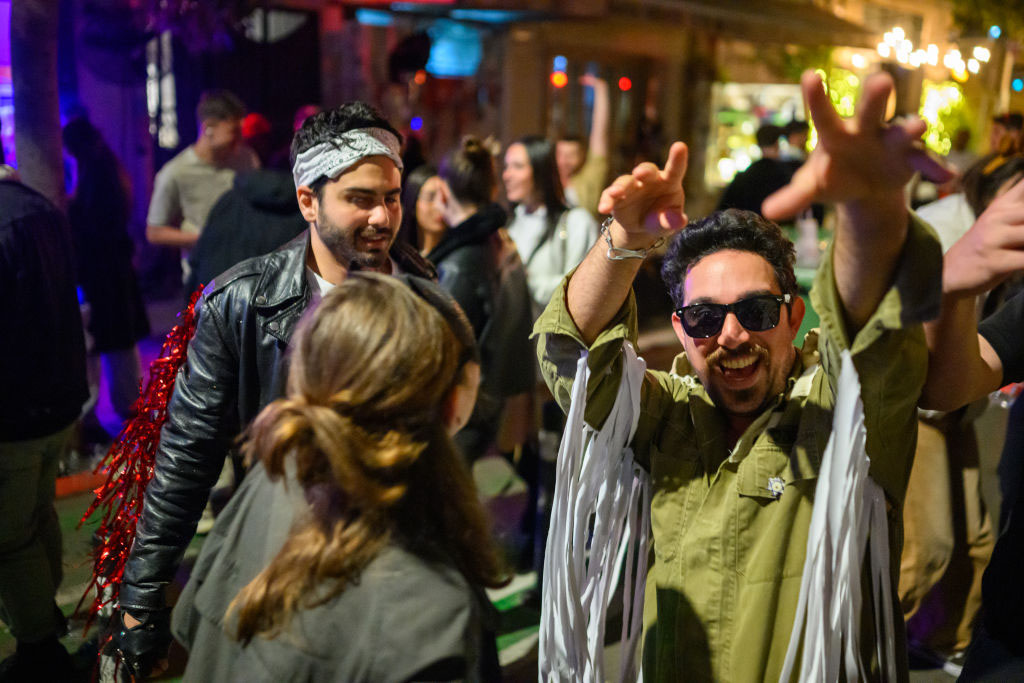
“Ulysses.” “Mrs. Dalloway.” “Amerika.” “Nightwood.” “Mazaltob.”
Are these the novels that come to mind when we think of Modernism, the literary movement of the early-20th century that challenged traditional ideas and more importantly forms, employing stream-of-consciousness, fragmentation and experimentation?
“Mazaltob,” of course, is the exception here—though perhaps it ought not be. The “Jewish novel,” as the author deemed it, was first published in 1930 by Blanche Bendahan, a woman from Oran, Algeria; Bendahan was born to a Jewish father and Catholic mother and was a successful writer in her time.
The novel is narrated (mostly) by the collective voice of the Jewish community of Tetouan in northern Morocco (where Bendahan’s father and husband were from), and it chronicles the short and frustrated life of a woman with the curious name of Mazaltob, or “good fortune.”
We meet Mazaltob in the year 1900; she is being educated in the Alliance Israélite Universelle system, a carefully curated and disseminated Paris-based curriculum for Jewish schoolchildren throughout Arab and Muslim countries (my own father, a boy in Cairo in the ’30s and ’40s, was one of its pupils). Bendahan creates tension between Mazaltob, who reads French literature (Baudelaire, Lamartine) and takes singing lessons, influenced by the French “civilizing” mission of her school, and the Tetouan community, which stifles difference and fears the dangers of foreign influence, wanting to protect its unique heritage. The narrative voice, for instance, wonders why Mazaltob learns to sing operas when “their Judeo-Spanish ancestors had brought to Tetouan ballads from Castilla like ‘The City of Toledo’ and ‘The Moorish Queen Xerifa’” along with “joyous” piyyutim, Jewish liturgical poems. Where the author sits in this push and pull is, as in any good work of fiction, not always clear; there is little doubt she, too, internalized the belief of European superiority, particularly in terms of the rights of women, but she also displays a deep affection for a dying way of life in her lovingly detailed depiction of Jewish Tetouan.
As for our heroine, a woman out of place, commended and condemned for her white skin and quiet manner (“One can barely hear her when she speaks,” one neighbor complains, a problem another neighbor chalks up to her Europeanness: “Mi bueno, in Europe, no one talks loudly”), she is also a woman very much of her place. Mazaltob marries, as she ought—at a very young age, without love, to a man more than twenty years her senior—and never leaves the African continent.
If you don’t, for leisure, sit down with William Faulkner’s “The Sound and the Fury,” or a poem by Mina Loy, you might need to adjust to Bendahan’s style of the writing, which resists generic conventions. Quotations often appear without named speakers, adding to the sense of collectivism created by the first-person plural narration, which usually seems to represent the community, but sometimes makes snide remarks about the community, and other times seems to come from within one or another of the characters’ heads. Jarring sounds repeatedly invade the prose: Toc. Toc. Toc. Toc. Crush, crush, crush. Clank. Clank. Clank. Clank. You…You…You…! Wo…Wo…Wo… Moreover, in the original publication, contemporary translators and editors Yaëlle Azagury and Frances Malino explain that “Mazaltob” borrows from the four linguistic and cultural universes it inhabits: Judeo-Spanish, French, Arabic, and Hebrew. The translators strive to keep some of Bendahan’s deliberate Sephardic métissage in the new English edition, so expect to rely on their endnotes.
Those who prefer to look past the formal and linguistic experimentation and use this text solely to learn about Moroccan Jewish life in the early part of the 20th century will be rewarded.
Those who prefer to look past the formal and linguistic experimentation and use this text solely to learn about Moroccan Jewish life in the early part of the 20th century will be rewarded. “Mazaltob” gives sound, sight and smell to the world it describes, along with a delineation of its value system. After all, the author seems to expect a reader unfamiliar with the daily life, customs and rituals of her characters. She provides a gloss on many, explaining, for example, what Mazaltob must do when she begins menstruating (dip her finger into a pot of honey before her mother and maid), and what happens at the nuptial ceremony of Bab al‘Urs, and how her bridal outfit, her Berberisca costume, includes a crown called a sfifa and hennaed nails. Foods are described in rich detail, and verses of songs are written out.
But to come to the novel only as a work of ethnography seems to me a grave mistake.
“Mazaltob” is not a perfect book; it devolves, in the end, into melodrama. But I am utterly swayed by the essay Azagury provides in the new English edition that calls Bendahan a “pioneer of a modern Sephardi feminist literature.” It is a shame that this colorful novel doesn’t have the cultural status of, say, Gertrude Stein’s “Three Lives,” and one wonders how much of that is the result of it not being the product of a writer from one of the world’s literary centers. In any case, with this new edition, readers and scholars can judge anew its place in the literary canon.
Karen Skinazi, Ph.D is Associate Professor of Literature and Culture and the director of Liberal Arts at the University of Bristol (UK) and the author of “Women of Valor: Orthodox Jewish Troll Fighters, Crime Writers, and Rock Stars in Contemporary Literature and Culture.”






















 More news and opinions than at a Shabbat dinner, right in your inbox.
More news and opinions than at a Shabbat dinner, right in your inbox.